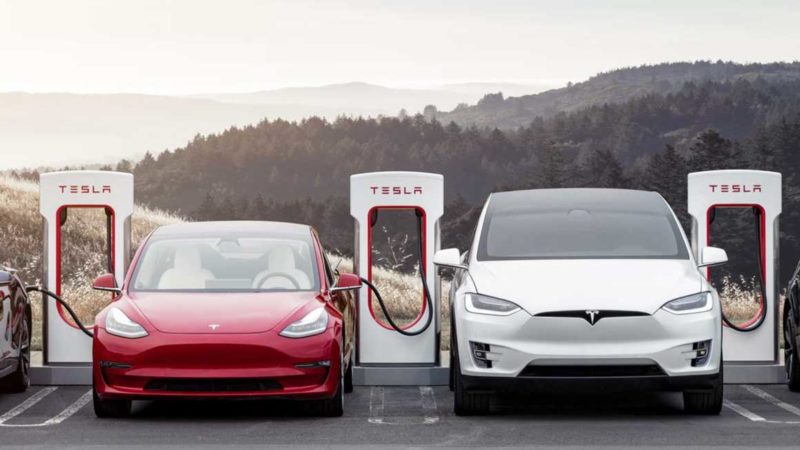Leading auto and “shared mobility” analyst Adam Jonas, from Morgan Stanley, has lifted his “bull case” price target for electric vehicle maker Tesla to $US2,070 – or the eqivalent market value of $A570 billion.
Tesla recently re-affirmed its position as the most valuable car company in the world, overtaking Toyota even though its 2019 production was just one thirtieth of the Japanese car maker.
See: It’s taken Tesla just 10 years to end Ice Age for Big Auto and Big Oil
But as Jonas notes in his latest report – released on Tuesday in the US: “Tesla was already seen as the undisputed leader in EVs and Auto 2.0.” And a resilient second quarter – on both demand and likely profit, means that the company now appears less risky than it had before.
So much so, that Tesla over the last three weeks had leaped 40 per cent in value – and over the past week had added to its valuation the equivalent of the entire market cap of legacy car maker Ford each day.
“We’re struggling to play catch-up here with the valuation,” Jonas remarks.
Tesla’s share price closed at $US1,389 overnight, prompting Morgan Stanley to lift its “target price” from $US650 to $US740. But its “bull case” scenario has been lifted to $US2,070 from $US1,200.
This “bull case” assumes Tesla is able to deliver 6 million units by 2030 with an EBITDA (earnings before interest, tax, depreciation and amortisation) of around 20 per cent. (The previous bull case valuation assumed four million vehicles).
That gives a value of $US1,832/share. Morgan Stanley adds a further $US37 a share for Tesla Mobility, $US43 for Tesla Energy and another $US158 for the potential to supply EV Powertrains to 3rd parties.
What has driven this change? Market sentiment is only part of it.
“To Tesla’s credit, they have exhibited a 2Q demand and production level that is significantly ahead of our expectations in what was shaping up to be an extremely difficult quarter… as it has been for many companies in the auto business,” Jonas writes.
“Stepping back, Tesla has demonstrated one very powerful differentiating quality vs. many of its auto peers: demand is holding up better … to our knowledge, there will not be any high scale global OEM (car maker) with anywhere near this level of (year on year) resilience.
“As investors mark to market the top line resiliency, they may also find that the company’s balance sheet is holding up better than most auto competitors, many of whom may experience double digit billions of negative free cash burns in 2Q and significantly expanded net debt balances.
“Tesla, on the other hand, may see some cash consumption from working capital, but is in position to post an above break-even result in 2Q. In both absolute and relative terms, Tesla appears ready to impress the Street for 2Q.”
Not that Jonas is discounting the risks, but notes that these are not enough to stop the rally that is also driven by a re-rating of Tesla stock, not just as a car company, but a tech company and which is now compared to the world’s most successful and highly valued tech firms.
Indeed, it is among the tech firms that Jonas sees the biggest long term threat – Amazon, Google, and Apple among them. But right now, on shared mobility, that is beyond the horizon.
Still, Morgan Stanley does end with a note of caution, which explains its “base case” valuation which is now barely more than half of the current share price.
“We are highly sympathetic to the excitement around a story like Tesla where the market is witnessing true dominance of go-to-market strategy and product strength in one of the world’s largest addressable markets.
“But at the same time, we believe the stock market has done more than a good enough job discounting the opportunity and, we believe, has not sufficiently discounted the associated risks.”

Giles Parkinson is founder and editor of The Driven, and also edits and founded the Renew Economy and One Step Off The Grid web sites. He has been a journalist for nearly 40 years, is a former business and deputy editor of the Australian Financial Review, and owns a Tesla Model 3.


